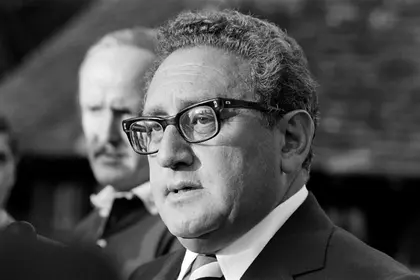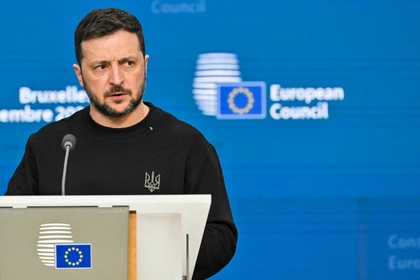Ukraine’s Foreign Minister Dmytro Kuleba on Thursday said that US diplomatic giant Henry Kissinger, who died aged 100, would leave a lasting impact on international politics.
“The century of Henry Kissinger was no easy one, but its great challenges fit his great and curious mind. He changed its pace and the face of diplomacy,” Kuleba said in English on social media.
JOIN US ON TELEGRAM
Follow our coverage of the war on the @Kyivpost_official.
“Crisp in thoughts, prolific in writings. His intellectual legacy will continue to influence the understanding of diplomacy and world order,” he added.
Kissinger, arguably the most identifiable secretary of state in modern times, died at his home in Connecticut on Wednesday.
He remains a divisive figure, including for his ruthless philosophy of realpolitik -- the cold calculation that nations pursue their own interests through power.
“He was a controversial but undeniably outstanding figure. His legacy of leadership and commitment to global collaboration will be remembered,” Ukraine’s presidential chief of staff Andriy Yermak said.
Kissinger, arguably the most identifiable secretary of state in modern times, died at his home in Connecticut, announced Kissinger Associates, through which the late diplomat grew wealthy helping businesses for decades after his government career.
It said that Kissinger's family would hold a private funeral, with a memorial service to take place later in New York, where Kissinger grew up after his Jewish family fled Nazi Germany.

Assassination of Kremlin’s Chemical General ‘Not a Good Idea’: Trump Envoy
The statement did not provide a cause of death. Kissinger had remained active even at as a centenarian, traveling to China in July to meet President Xi Jinping.
China was one of Kissinger's most lasting legacies. Hoping to shake up the Cold War fight against the Soviet Union, Kissinger secretly reached out to Beijing, culminating in a historic 1972 visit by president Richard Nixon and later the US establishment of relations with the then-isolated country, which has soared into the world's second largest economy and growing competitor with Washington.
While Kissinger was despised in much of the world, China's ambassador to Washington, Xie Feng, called Kissinger a "most valued old friend" and his death a "tremendous loss for both our countries and the world."
Kissinger at home also enjoyed deference across the political mainstream, with incumbent Secretary of State Antony Blinken, a member of the rival Democratic Party, attending his 100th birthday party in New York.
"America has lost one of the most dependable and distinctive voices on foreign affairs with the passing of Henry Kissinger," former president George W. Bush, a Republican, said in a statement.
Kissinger was awarded the Nobel Peace Prize for negotiations to end the Vietnam War, even though the conflict did not immediately end and his North Vietnamese counterpart, Le Duc Tho, declined to accept the prize.
After the Watergate scandal brought down Nixon, Kissinger served under his successor, Gerald Ford. In an unprecedented arrangement reflecting his influence, Kissinger served simultaneously as secretary of state -- the country's top diplomat -- and national security advisor, the president's right-hand aide.
You can also highlight the text and press Ctrl + Enter






